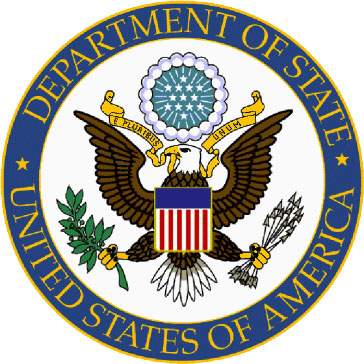Ilankai Tamil Sangam30th Year on the Web Association of Tamils of Sri Lanka in the USA |
|||
 Home Home Archives Archives |
US State Dept Report on Sri Lankaby Bureau of Democracy, Human Rights & Labor, March 11, 2008
Sri Lanka is a constitutional, multiparty republic with a population of approximately 21 million. President Mahinda Rajapaksa, elected in 2005 and the parliament, elected in 2004, both for six-year terms, share constitutional power. International observers generally characterized these elections as free and fair. However, in September parliament launched an investigation into allegations of a 2005 agreement between the current president and the Liberation Tigers of Tamil Eelam (LTTE) to enforce an election boycott in the north and east, depriving Tamils of their right to vote. In 2002 the government and the LTTE signed a formal Cease-Fire Accord (CFA) to end the two-decade-old armed conflict. Renewed hostilities broke out between the government security forces and the LTTE in 2006 and have since escalated. In August 2006 following the European Union's (EU's) designation of the LTTE as a terrorist organization, Sweden, Finland, and Denmark announced their withdrawal from the Sri Lanka Monitoring Mission (SLMM) in response to LTTE demands. Subsequently, 37 monitors departed, leaving approximately 30 Norwegian and Icelandic civilian monitors in the country. By mid-year, although the CFA technically remained in force, the SLMM ceased citing specific violations due to a lack of any response to previous complaints. In August government security forces expelled LTTE troops from the east. Military confrontations also occurred regularly in the northern districts of Mannar, Vavuniya, and Jaffna. While civilian authorities generally maintained effective control of the security forces, the government also worked closely with Tamil paramilitary groups responsible for gross human rights violations. The government's respect for human rights continued to decline due in part to the escalation of the armed conflict. While ethnic Tamils composed approximately 16 percent of the overall population, the overwhelming majority of victims of human rights violations, such as killings and disappearances, were young male Tamils. Credible reports cited unlawful killings by government agents, assassinations by unknown perpetrators, politically motivated killings and child soldier recruitment by paramilitary forces associated with the government, disappearances, arbitrary arrests and detention, poor prison conditions, denial of fair public trial, government corruption and lack of transparency, infringement of religious freedom, infringement of freedom of movement, and discrimination against minorities. There were numerous reports that the army, police, and progovernment paramilitary groups participated in armed attacks against civilians and practiced torture, kidnapping, hostage-taking, and extortion with impunity. The situation deteriorated particularly in the government-controlled Jaffna peninsula. By year's end extrajudicial killings occurred in Jaffna nearly on a daily basis and allegedly perpetrated by military intelligence units or associated paramilitaries. There were few arrests and no prosecutions as a result of these abuses, although a number of older cases continued to make slow progress through the judicial system. Government security forces used the broad 2005 emergency regulations to detain civilians arbitrarily, including journalists and members of civil society. The LTTE, which maintained control of large sections of the north, continued to attack civilians and engage in torture and arbitrary arrest and detention; denied fair, public trials; arbitrarily interfered with privacy; denied freedoms of speech, press, and assembly and association; and forced recruitment, including of children. The LTTE was also active in areas it did not control and during the year carried out at least one politically motivated killing in Trincomalee, a politically motivated suicide attack in Colombo, a suicide attack against a government army base near Batticaloa, a bombing of civilian shoppers in a suburb of Colombo, and bombings of civilian buses in the south. Entire report on Sri Lanka here. Video of Assistant Secretary for Democracy, Rights and Labor Jonathan Farrar introducing report here. |
||
|
|||
 Summary:
Summary: